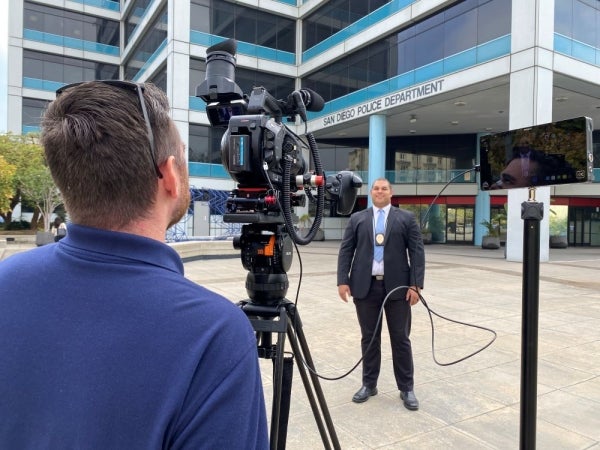Inclusive Engagement Techniques and Approaches
Public Service Announcements (PSAs)

What is it?
Public service announcements (PSAs) are short messages that share important information in an audio or video format. PSAs are either 30 seconds, one minute or one minute and 30 seconds. They are clear and easy-to-understand messages that can be posted online or shared with news outlets for broadcast as official messages to the public. PSAs may look similar to commercials but are not selling something — rather, they share information, communicate opportunities for public participation, or publicize calls to action.
When to use it
PSAs can be used when sharing brief and targeted information, especially when requesting citywide action. For example, during the rainy season, the City may release a PSA to inform community members about how to prevent stormwater runoff and keep the oceans clean. This example meets the requirements of urgency, broad audience and importance. PSAs are best used for necessary messages as opposed to everyday information. It is helpful for the subject to be visual to capture the viewers’ attention.
How to do it
Consult with the department’s Public Information Officer or Communications Department before beginning any work relevant to the PSA.
Before
- Understand the target audience and their framing of the issue. It can be helpful to consult with people who are the focus of the PSA during the planning process to learn what message would be most impactful to them.
- Create a goal for the PSA – what is it trying to accomplish or inspire? A PSA must have a hook that grabs the viewers’ attention and an intentional message and should use clear, simple, and inclusive language.
- Evaluate the best platform to reach the target audience. Determine whether a cost will be involved in purchasing airtime, and the best method for sharing the PSA with external audiences.
- There may be time constraints based on the platform where the audio or video message will be broadcast.
- Consider how long the PSA should run based on the information being shared. It could be a couple weeks, one month or longer.
During
- Work with the department's Public Information Officer or Communications Department to submit PSA scripts that meet the specified requirements of media outlets.
- For example, certain news stations may have format requirements for video submissions, such as specific file formats, frame rates and resolutions.
After
- Work with the department’s Public Information Officer or Communications Department to evaluate the success of the PSA (such as views and clicks) and discuss any changes that should be made for future PSAs.
Resource considerations
![]()
Cost: Minimal
Television channels and radio stations may broadcast PSAs for free, so the only cost is production. The City’s Communications Department can provide these services to other departments at staff cost.
![]()
Time: Moderate
Public service announcements may take several weeks to write, film or record and share with the media.
![]()
Capacity: Moderate
The Communications Department should assist in creating the PSA. There should be key staff from the requesting department able to assist with script and content development.
How to make it more inclusive
- Make sure captions are available for videos.
- It is highly recommended that a PSA be broadcast in both English and Spanish. Additional languages may be requested based on the content and intended audience.
- Select a network(s) with a broad and diverse audience and reach.
Inclusive Engagement Techniques and Approaches
- Introduction
- Appreciative Inquiry
- Arts-based Engagement
- Briefings
- Comment Forms
- Community Cafés
- Community Mapping
- Community Office Hours
- Email Notifications
- Engagement through Service
- Fact Sheets
- Flyers
- Focus Groups
- Game-based Approaches
- Hotlines
- Information Kiosks
- Interviews
- Meeting in a Box
- Mobile Engagement
- News Releases
- Newsletters
- Open Houses
- Participation Support
- Pop-Up Events
- Project Models
- Project-specific Groups
- Public Meetings
- Public Service Announcements (PSAs)
- Social Media
- Surveys and Polls
- Tours and Field Trips
- TV/Radio/Podcast Interviews
- Vision Walls
- Web-Based/Hybrid Meetings
- Webpages
- Workshops


 Inclusive Public Engagement Guide
Inclusive Public Engagement Guide